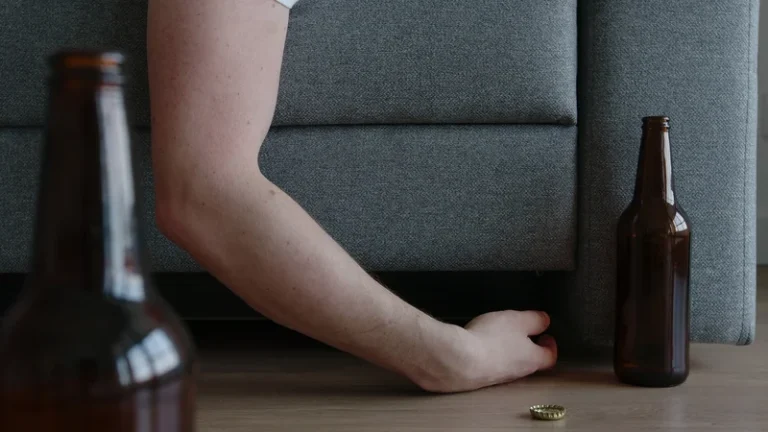Gratitude’s Role in Addiction Recovery

Taking the time to thank someone for their support, kindness, or presence can not only uplift one’s spirits but also enhance the why is gratitude important in recovery bonds shared with others. Drugs and alcohol can take a severe toll on the body and brain, and an overdose can leave a user permanently disabled, or dead. Addiction also puts people at risk for violence and criminal activity.

Managing Emotional Instability During Cocaine Withdrawal

In addition to promoting self-reflection, journaling aids in changing these harmful thought patterns. By documenting their thoughts and feelings, individuals can identify distortions in their thinking. This practice encourages them to challenge negative perceptions, guiding them toward healthier cognitive responses and emotional states. By living in the present and focusing on these positive practices, individuals can celebrate their recovery journey. Viewing life through a lens of gratitude can benefit your life in a variety of ways.

An Alarming Number of Teens Driving Under the Influence of Alcohol or Drugs
Explore the ways rehab facilities help you stay sober, from therapy types to support systems for lasting recovery. Completing a journey of addiction treatment is a significant achievement, marking a crucial step toward a healthier and… Explore how CBD plays a role in addiction recovery, from easing anxiety to managing withdrawal symptoms. Begin your recovery journey by choosing a rehab near me, offering comprehensive, individualized addiction care. Discover the history of Xanax, its impact on mental health, and resources for addiction help in Kansas.
Why Does Everyone Tell Me I Need Drug Rehab?
As a fundamental thread in the tapestry of recovery, gratitude offers a pathway to a brighter, healthier future. Gratitude serves as a cornerstone for individuals navigating the challenges of addiction recovery. By fostering a positive mindset, gratitude enhances emotional stability and helps individuals combat the negative thought patterns that can threaten sobriety. When people practice gratitude, they focus on appreciation rather than dwelling on guilt or shame, which are common feelings during recovery. In this section, we’ll explore the power of gratitude during addiction recovery and the benefits it can bring.
- In recovery, building strong social connections through gratitude can lead to increased resilience, serving as a protective factor against the stressors that may arise.
- For more insights on this connection, read about staying present in recovery journey.
- When addiction rules most aspects of life, it can be difficult to recognize and take advantage of new opportunities to learn, grow, and change.
- Gratitude, thankfulness, and appreciation – paying attention to the positive things in your life is an important part of a healthy outlook on living.
- Gratitude can be defined as one’s inclination to be mindful and appreciative of what is good in our lives and return the kindness we have received back into the world.
- Studies suggest that practicing gratitude correlates with a lower risk of major depression, generalized anxiety disorder, and substance dependence, including alcohol and drugs 2.
Learning to express gratitude regularly can enhance the benefits of these interactions, leading to a lasting, positive impact on one’s recovery journey. Additionally, gratitude enhances motivation to maintain accountability and commit to personal growth. In essence, cultivating gratitude transforms lives, enhancing emotional health and Drug rehabilitation fostering deeper connections with others. This dynamic process serves as a foundational element in the recovery process, reinforcing the importance of supportive relationships and emotional well-being, crucial for long-term recovery success.

How Long Does Amoxicillin Stay in Your System?
- This process not only deepens self-awareness but also provides motivation by showcasing how far they have come in their journey.
- These reflections reinforce self-awareness, help process emotions, and promote personal growth.
- It’s also important that you be aware of what you may experience as the partner of someone who is overcoming addiction.
- A great way to take the focus off yourself and your own difficulties is to help others.
- Addiction strips away all the good things in life; health, happiness, contentment … you name it.
Mindfulness helps you focus on all those everyday events and experiences that make you feel positive – and grateful. Addiction experts agree that gratitude can strongly influence a person’s chance for a successful recovery from any kind of addiction. Gratitude offers both mental and physical health benefits, which can contribute to mental stability and happiness. By focusing on what you have, instead of what you do not, you can foster healthier thought patterns, and achieve better satisfaction with your life. Acknowledging the stresses and challenges each person faces is crucial for preventing relapse or bottling up these challenges. Working with professionals, family members, and peers to identify personal triggers, unique stresses, and more is part of acting effectively in the face of stress.

